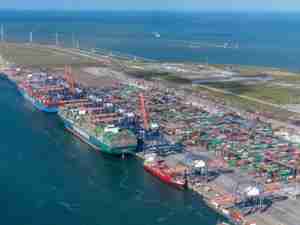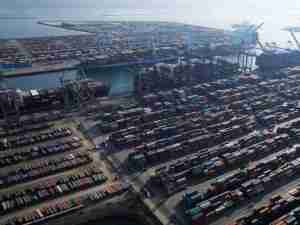A majority of non-insider shareholders in Filipino port operator International Container Terminal Services Inc. (ICTSI) have voted against the re-election of Directors Stephen A. Paradies and Jon Aboitiz at the company’s Annual Stockholders’ Meeting on the 19th of April 2018.
This vote follows recommendations from the world’s largest proxy advisory service Institutional Shareholder Services (ISS), which supported the significant corporate governance concerns raised by the International Transport Workers’ Federation (ITF).
More than 320 million shares were cast against each of Directors Paradies and Aboitiz, representing more than 68 per cent of the non-insider shareholdings in the company.
Major shareholders voting against the Directors included the California Public Employees Retirement System (CalPERS), one of the world’s largest institutional investors with more than $320 billion in assets under management. Similarly, the California State Teachers Retirement System (CalSTRS), Norges Bank and APG Asset Management all revealed that they voted against Directors including Paradies and Aboitiz.
Paddy Crumlin, ITF President and Vice-Chair of the International Trade Union Confederation’s (ITUC) Committee on Workers Capital (CWC) said today: “Shareholders have sent a strong message to ICTSI that they must make changes to their Board. The ITF recommended shareholders vote against Directors Paradies and Aboitiz over their alleged contribution to major governance and operational issues at the company, and non-independence.
“ISS identified that ICTSI’s Board does not comply with the Filipino Government’s Securities and Exchange Commission’s Code of Corporate Governance for Publicly-Listed Companies.
“Failures identified include a lack of board independence, a failure to have a separate Chair and CEO, a lack of independent directors on the audit committee, and a lack of independent directors on the corporate governance committee.
“This vote again sends the message that ICTSI must put in place decent and sustainable governance structures in line with accepted international best-practice in order to avoid major operational issues, including protracted disputes that the ITF has observed across the company’s terminals, and relationships with censured regimes.”










